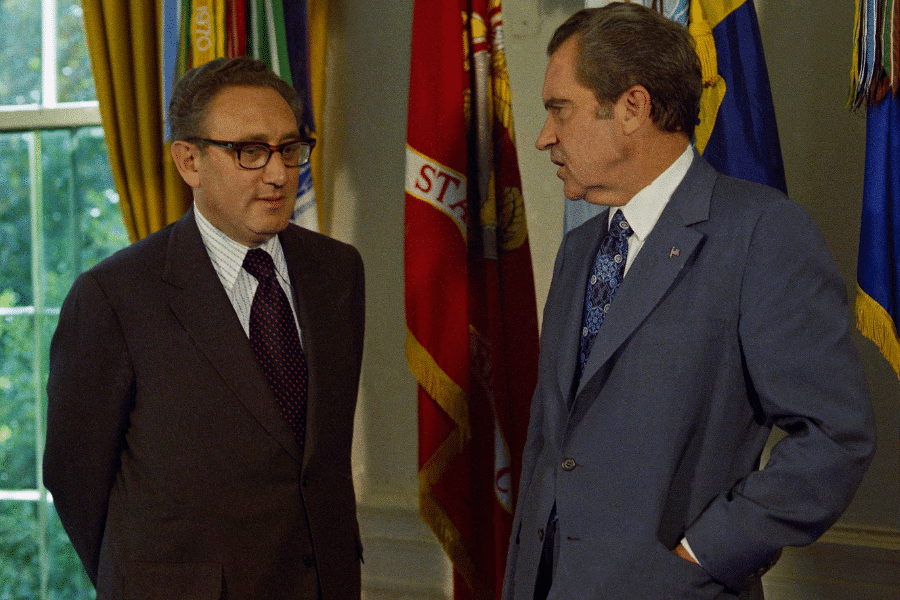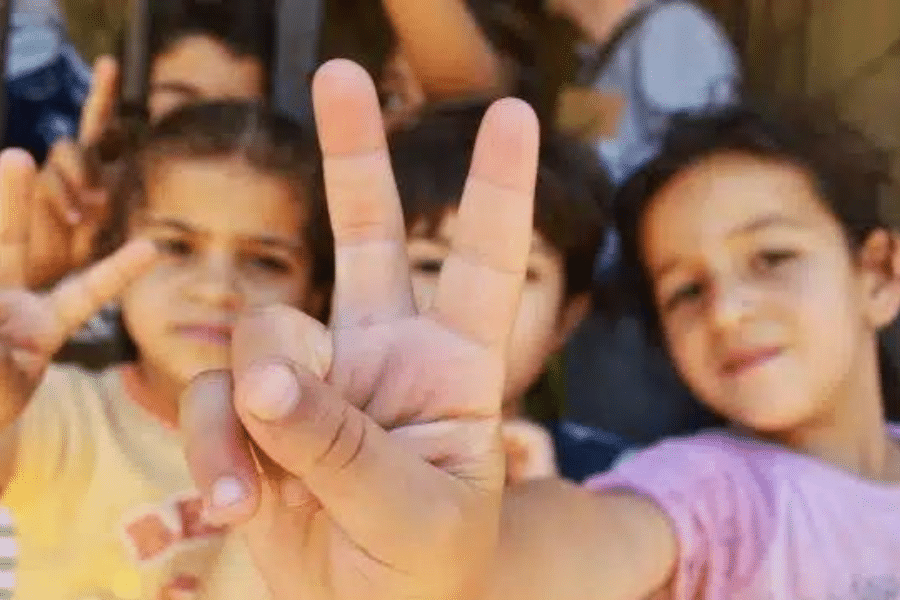
by Harvey Morris | 28 Dec 2023 | Middle East, Politics
Despite the failure to achieve even substantial cease fires in Israel’s war with Hamas, there are people who still think lasting peace is possible. Workers place sections of a nine-meter (30-foot) high concrete wall to replace a border fence between the northern...

by Daniel Warner | 1 Dec 2023 | Educators' Catalog, History, Politics, United States
Henry Kissinger died on the 29th of November. Our correspondent remembers the one time he had the opportunity to question him directly about his lauded career. U.S. Secretary of State Henry Kissinger being congratulated 16 October 1973 by U.S. President Richard Nixon...
Henry Kissinger’s death made headlines at the end of November 2023. This famous diplomat sparks controversy. How should he be remembered? Correspondent Daniel Warner reflects on his brief interaction with Kissinger in Geneva back in 1999.
Exercise: Read the article with your class, then review headlines announcing Kissinger’s death from various media sources. How does the wording of these headlines differ? How does that difference change the way a reader may perceive Kissinger’s legacy? Use this activity as a conversation starter to discuss the power of word choice in media bias and framing.

by Irena Grizelj | 29 Nov 2023 | Decoder Replay, Personal Reflections, Politics
Young people are caught in the crossfire in war. Those who survive are left with long term consequences. But we don’t think to include them in peace making. Ukrainian youth huddle in prayer on 8 April 2022, as the group disbands after spending nearly a week...

by Daniel Warner | 21 Nov 2023 | Decoders, Educators' Catalog, History, Middle East, Politics, Russia, Ukraine
There is an evolving global consensus that some acts of violence in warfare are not acceptable. But how in the world can we enforce that? Headquarters of the International Criminal Court in The Hague, Netherlands. This article was produced exclusively for News...
Headlines about today’s international conflicts in Gaza and Ukraine paint atrocious pictures of war crimes and violent attacks. Are these actions sanctioned in the eyes of international humanitarian law? Correspondent and political science professor Daniel Warner of the Graduate Institute in Geneva gives an overview.
Exercise: Using this summary document from the Red Cross, print out 30-40 articles from the Geneva Conventions and their Additional Protocols. Cut each article out separately. Then, prepare a large board/poster for sorting and pasting the articles, divided into four sections: civilians, prisoners of war, wounded/sick, critical infrastructure. Have students read through each article and sort them within the four categories. As they learn more about the Conventions, you may consider bringing in current headlines to evaluate whether or not today’s conflicts have abided by these international humanitarian laws. Note: Consider creating 4-5 sets of article texts and sorting posters if you have a large class, or create a digital version via Google Slides.

by Jan Oberg | 15 Nov 2023 | Decoder Replay, Journalism, Media Literacy, Middle East
Journalists tend to depict conflict as violent struggles between good and bad. There is a different way to think about war. Syrian refugee children in Lebanon (Wikimedia Commons/Trócaire/Eoghan Rice) Editor’s note: This week News Decoder is exploring the future...





